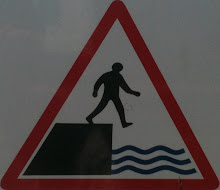"When he saw the crowds, he had compassion on them, because they were harassed and helpless, like sheep without a shepherd." (Matt. 9:36)
Harassed and helpless, like sheep without a shepherd. I think the translation, and the way we've heard these words preached on, doesn't help us. We may be tempted to think that there is silliness, confusion, lostness as the main problem that faces these shepherdless sheep.
Harassed - the Greek word contains the idea of being flayed, skinned, mangled. And even possibly of these being self-inflicted.
Helpless - the Greek word contains the idea of being violently cast down or cast away.
The problem for sheep without shepherds is not so much that they are lost and leaderless; it is that they face terrible danger and even death.
So, when Jesus looked compassionately at the crowd, he was moved with deep pity because they were in mortal danger and there was no one to help.
But there was him! He had a gospel to proclaim, and kingly authority to exert. And this gospel and this kingdom would take him to a cross where he would be violently cast away and mangled by the angry mob of humanity. And entering our lostness, he found us to bring us home to Him who clothes and heals us, and who will in no way cast us down. To the Father of all grace and mercy.




